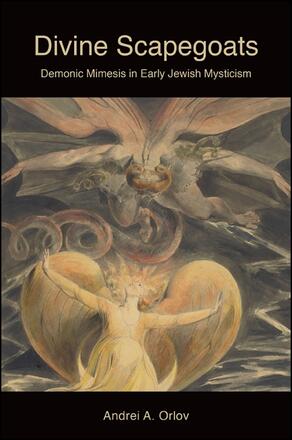
Divine Scapegoats
Demonic Mimesis in Early Jewish Mysticism
Alternative formats available from:
Explores the paradoxical symmetry between the divine and demonic in early Jewish mystical texts.
Description
Divine Scapegoats is a wide-ranging exploration of the parallels between the heavenly and the demonic in early Jewish apocalyptical accounts. In these materials, antagonists often mirror features of angelic figures, and even those of the Deity himself, an inverse correspondence that implies a belief that the demonic realm is maintained by imitating divine reality. Andrei A. Orlov examines the sacerdotal, messianic, and creational aspects of this mimetic imagery, focusing primarily on two texts from the Slavonic pseudepigrapha: 2 Enoch and the Apocalypse of Abraham. These two works are part of a very special cluster of Jewish apocalyptic texts that exhibit features not only of the apocalyptic worldview but also of the symbolic universe of early Jewish mysticism. The Yom Kippur ritual in the Apocalypse of Abraham, the divine light and darkness of 2 Enoch, and the similarity of mimetic motifs to later developments in the Zohar are of particular importance in Orlov's consideration.
Andrei A. Orlov is Professor of Judaism and Christianity in Antiquity at Marquette University. He is the author of several books, including Dark Mirrors: Azazel and Satanael in Early Jewish Demonology, also published by SUNY Press.
Reviews
"…Divine Scapegoats … injects new insights into our understanding of the early foundations of the Jewish mystical tradition … [and] is a valuable contribution to Sephardic studies. With its bibliography and very extensive notes it should find a place in academic libraries. " — AJL Reviews
"An impressively productive scholar, Orlov is widely regarded as one of the foremost experts in the so-called Slavonic pseudepigrapha, a group of Jewish apocalyptic texts from the Second Temple Period whose origins and transmission history is especially obscure. Divine Scapegoats demonstrates once more Orlov's mastery of these texts. " — H-Net Reviews (H-Judaic)